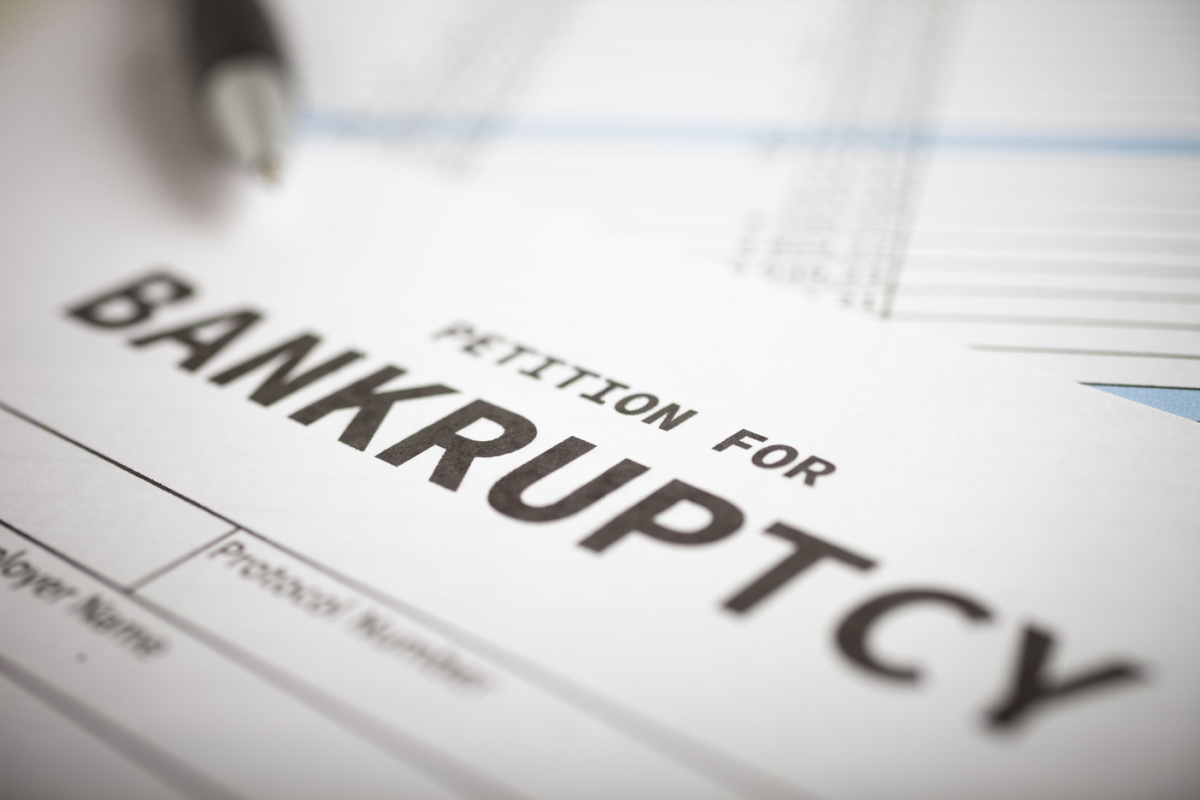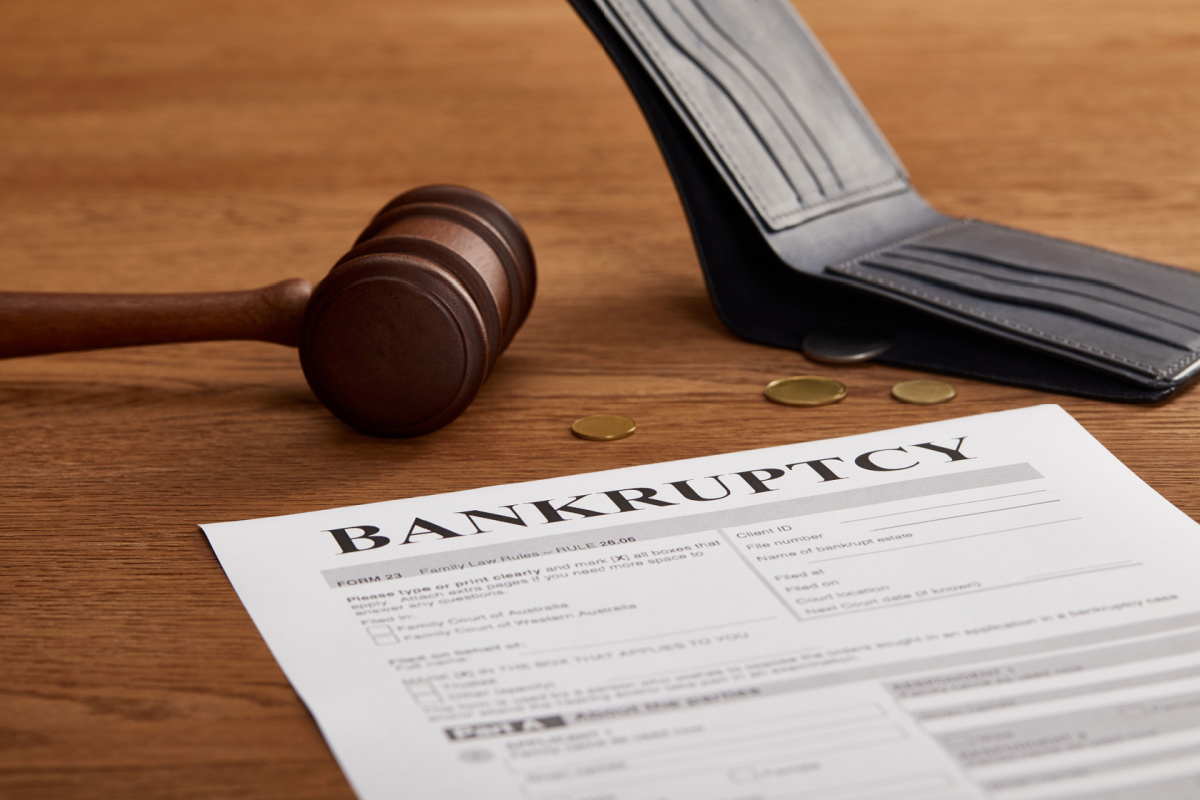





Attorney at Debt Advisors Law Offices
Practice Areas: Chapter 7 Bankruptcy, Chapter 13 Bankruptcy, Stop Foreclosure

The author and financial educator Tiffany Aliche, known as “The Budgetnista,” uses the lessons she learned when she was laid off from her job as a preschool teacher to teach others about preparing for a financial emergency. One of her fundamental pieces of advice? Be ready for the worst-case scenario – including bankruptcy.
Bankruptcy provides individuals or businesses facing serious financial trouble with a way to eliminate or repay some or all of their debts. At its core, it is a method that allows for a fresh start when financial obligations become overwhelming. However, it’s important to remember that while bankruptcy can offer relief, it is not a quick fix or an easy way out.
This process involves the court and usually lasts several months to years. It leaves a significant impact on one’s credit report, which can make future borrowing more difficult. Understanding the basics of bankruptcy is the first step towards making informed decisions about a better financial future.
Bankruptcy isn’t one-size-fits-all. The most common paths for individuals are Chapter 7 and Chapter 13, but the differences can feel confusing. For single parents, the distinction is less about legal terms and more about what each option means for daily life.
Chapter 7 bankruptcy in Wisconsin is often referred to as a “liquidation” process. While that might sound alarming, many essential assets are protected under exemption laws. For a single parent, this could mean keeping necessary household items, transportation, and income needed for child care, while wiping out certain unsecured debts.
Chapter 13 bankruptcy in Wisconsin, on the other hand, focuses on restructuring. Instead of giving up assets, parents may create a repayment plan that spreads debt out over several years. This can help keep a roof over the family’s head or protect a car that’s essential for work and school runs.
Both approaches come with trade-offs. The key takeaway is that bankruptcy is not about losing everything but about finding a manageable path forward while protecting your family’s essentials.
Bankruptcy is a serious decision that can have long-term effects on an individual’s financial situation. Therefore, it should only be considered when other options have been exhausted. For single parents, this might come into play when debt becomes an insurmountable obstacle, despite their best efforts to keep up with payments.
If paying off debts is leaving little to no money for necessary living expenses, or if the accumulation of debts, such as medical bills or credit card balances, is beyond control, bankruptcy might be the best option. It could also be worth considering if the threat of losing essential assets, like a home or vehicle, is imminent due to missed payments.
It’s important to evaluate finances thoroughly and consider all other options before deciding on bankruptcy. This includes budget adjustments, debt consolidation, or negotiating with creditors.
Filing for bankruptcy as a single parent comes with unique challenges and opportunities. Single parents, often reliant on a single income, may face greater financial strain, especially when juggling the costs of raising children alongside regular household expenses.
Bankruptcy can bring relief by removing some or all unsecured debt, freeing up resources for essential expenses such as rent, groceries, and childcare. In some cases, it may also prevent eviction or foreclosure, providing stability for the family.
However, bankruptcy also comes with downsides. It can have a long-term negative impact on credit scores, making future borrowing more costly. The process can be time-consuming and stressful, especially for a single parent with many responsibilities.
Filing for bankruptcy involves a court process, but for single parents, what matters most is how it affects day-to-day life. Once a petition is filed, an automatic stay goes into effect. This halts most creditor actions, such as wage garnishments or collection calls, which can be a huge relief for parents balancing bills with child-related expenses.
The process also requires a detailed look at income, debts, and assets. This can feel overwhelming, but it ensures the court has a full picture of your financial situation. For parents, it’s important to gather documentation such as household budgets, childcare costs, and medical expenses, since these often play a role in how repayment obligations are structured.
Instead of focusing on legal technicalities, the practical reality is that bankruptcy introduces breathing room. It pauses aggressive debt collection and provides a structured way to address obligations while keeping focus on children’s needs.
Bankruptcy has a unique relationship with child support and alimony, also known as domestic support obligations. In bankruptcy law, these obligations are given a priority status, which means they are not discharged or eliminated by filing for bankruptcy. Regardless of whether a person files for Chapter 7 or 13, these payments must continue.
In a Chapter 7 bankruptcy, any back child support or alimony will not be wiped out. Instead, these debts remain due and must be paid. Similarly, in a Chapter 13 bankruptcy, the repayment plan must include full payment of any past-due domestic support obligations.
It’s also worth noting that an automatic stay, which usually halts creditors from collecting debts, does not stop actions to collect child support or alimony.

Bankruptcy can have a significant impact on your credit score, and this is an important factor single parents should consider. When a bankruptcy is filed, it becomes part of public record, and it’s noted on your credit report. Chapter 7 can remain on your report for up to 10 years, while Chapter 13 can stay for up to 7 years.
The higher a credit score is before bankruptcy, the more significant the drop will be. It’s common for scores to decrease by 100 to 200 points. This can make it harder to get loans or credit cards in the future, and if you do qualify, you may face higher interest rates.
However, the impact of bankruptcy on credit score lessens over time. By using credit responsibly, you can gradually rebuild your score after a bankruptcy.
For single parents, the decision to file for bankruptcy often comes after months or years of financial stress. While it may feel like a last resort, the process can provide meaningful relief by stopping creditor actions, protecting essential assets, and freeing up resources for housing, childcare, and daily needs.
Bankruptcy does have long-term effects, particularly on credit, but it can also mark the beginning of a more stable financial future. The key is understanding how the law applies to your situation and weighing all available options before moving forward.
Working with an experienced Wisconsin bankruptcy attorney can help you make informed decisions about Chapter 7 or Chapter 13 and guide you through each step with clarity and compassion. For many single parents, professional support makes the difference between struggling alone and building a stronger foundation for the future.

Learn about bankruptcy protections, types of bankruptcy, how to get started, what to expect, and who to trust. Filing bankruptcy is the ONLY way to completely eliminate debt. If bankruptcy is right for you, it offers powerful protections that cannot be achieved through alternative solutions such as hardship relief, loans, or debt settlement.